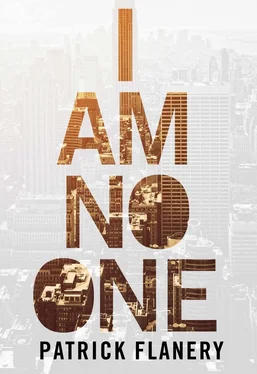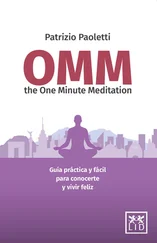‘And the other alternative?’
‘I don’t have an objection to abortion in principle. I have my mother’s rational pragmatism in that way. But I’m not sure it’s what I want, if it’s the decision I would necessarily take, and yet I would never consider giving up the child for adoption, so either I have the abortion or I accept that I will have a child, and that means having a child with you, in some way, however that might work.’
‘I can’t make the decision for you.’
‘I appreciate your saying that. I mean, I appreciate you respecting my right to make the decision. But it would be helpful to know what you would be prepared to do, in either case.’
‘I will support you, whatever you decide.’
‘What does that mean exactly? Emotionally?’ She paused, wrinkling the bridge of her nose, her eyes disappearing for a moment behind a veil of dark hair. ‘Financial? Or would you be prepared to be a father? To be present in the life of our child?’
‘Whatever you decide, I will be there, if you want me to be there, or I will disappear, if that is what you prefer. If you choose to have an abortion, I will pay for it. If you decide to keep the child, I will support you as well, and take whatever role in his or her life you wish me to take. I am not a bad person; at least I don’t want to be a bad person. Perhaps it was a mistake, but I want to do whatever I can to make it right, or to do what is right, what is best, from your perspective.’
‘Do you have your own perspective? Do you want a child with me, even if we have separate lives?’
It was not a question I had expected. After Meredith’s birth Susan and I had made a conscious decision not to have more children, in the belief that it was the ethical thing to do, not to contribute to the overpopulation of the planet but also to think sensibly about our means as two academics living in New York. Circumstances had changed, for I suddenly found myself, later in life, with significant financial security, and no worries about Meredith’s own situation. In other words, I could afford to support a child. What would it mean, though, if it were a child with whom I might only ever enjoy a tenuous connection, a boy or girl living perhaps in Egypt, or France, or even in Oxford, such that I might see him or her every week (I had not, at that point, been approached by NYU, so had no thought of returning to New York any time soon)?
‘I have a child, of course, a daughter around your age. She got married last year, younger than I would have expected. I know what that sounds like.’ How easily I said it then. I wonder if I would find it so easy now.
‘As you say, these things happen.’
‘So I’ve had the experience of fatherhood. It’s not a need I feel in the way a younger man might, but that’s not to say I would do anything other than welcome a second fatherhood, even a distant one, if that’s what you wanted.’
‘The idea of a child appeals to you?’
‘Yes,’ I said, without hesitation, and my own certainty surprised me. ‘Have you thought how it might work, if you keep it?’
‘I don’t know that it can work, this is the problem. If I keep the child I will have to find a way of explaining to my parents. My father will want to know who the father is. He might even want to. . I don’t know. . To me I don’t think of him as a violent man, but suddenly I have visions of telling him and then watching as he grows enraged and flies from the house, driving to Oxford, breaking down your door, and strangling you in your bed, or stalking you to the ends of the earth, making life hell for your family in America, and I believe he might be capable of doing this. I have seen these scenarios in my head over the last few days. So I don’t know how I would handle this. Perhaps I could lie and say it was a fellow student, or that I was drunk and had gone to bed with someone and didn’t remember who it was. But I think, for now, it would be impossible to tell them it was you. Even if he didn’t want to kill you, my father remains well connected, especially with people in America.’
‘But would I have a role in the child’s life?’
‘Yes, I would want that. I don’t know how or when. I haven’t decided. I need some time to think about all the ramifications, but it is useful to know where you stand. I appreciate that.’
‘Are you sorry this has happened?’
‘Sorry? I don’t know. I think I need to be alone for a while longer. But thank you, Jeremy.’ She stood and handed me her empty mug.
‘Should I wait to hear from you?’
‘Yes, that would be best, for now.’
‘If you need. . What I mean is, if it requires taking time out from your work, all of that can be arranged.’
‘Yes, I know. Don’t be so English.’
‘I will do everything I can to make this right, whatever you choose. If you have the baby you can take a break. If you don’t have it you can also take a break. If you need money, there is money.’
She turned and glared at me for an instant. ‘I wish you would just say what you want, without any equivocation.’
I did not have to think. ‘Keep it. Keep the child. That’s what I want. We’ll find a way.’
She looked at once surprised and furious but almost reflexively leaned over to kiss me on the cheek, twice, just next to my lips, either side of the mouth, and then she turned and was off through the kitchen and halfway down the hall. By the time I reached the front door she was on the sidewalk and raised a hand in farewell as I called out goodnight.
Alone in my Oxford house I felt a surge of warmth as I imagined the child she might have, though I held myself back from thinking of it as my child, since I had no faith at that moment whether, despite my role in its creation, she would ultimately want me involved, or would even allow me to have contact such that I might think of myself as a parent. Alongside this feeling there was a sense of isolation, of being unable to tell anyone what I had just learned, not only because I wanted to protect Fadia, whatever her decision, but also to protect myself. I feared the scandal that might result if the College or university discovered I had impregnated one of my students; it would make my position at Oxford untenable if it became public, and might even end my career anywhere, worse than any failure to get tenure would ever do. I imagined seeing out the rest of my working life in some backwater state university or community college, perhaps even fleeing to one of the remote Anglophone corners of the world and teaching History in a small Asian university or African technikon where no one would possibly know what I had done. Britain has a great tradition of sending its scandals away, once to the empire or the colonies, and even still one hears stories of the failed son of a good family packing off to Kenya or South Africa or Australia to try to make a life for himself where his diminished state will cause no embarrassment to the family remaining in Britain. There is no real American equivalent, perhaps because Americans are in a way more forgiving of failure and the country is so large that the idea of holing up in a remote western outpost always floats along as a possibility in the mind of a man who fears he may not have strength sufficient to live out the life his parents and community have imagined for him; it remains possible to lose oneself in North America in a way it has not been possible in Britain for many centuries.
Such trajectories played about in my head while I stood, feeling a little breathless, in the hallway of my house on Divinity Road, contemplating the prospect of again becoming a father. How, I wondered, would my daughter react? Or my mother, for that matter, suddenly presented with a new grandchild, a baby to fuss over and adore when she no longer had any reason to expect the appearance of one? I tried to calm myself, to assume nothing, but the feeling of warmth spreading through my limbs was born as much from the anticipation of loving a new daughter or son, as it was a feeling of expectation in the creation of something good, a new life unmarked by acts or deeds.
Читать дальше












